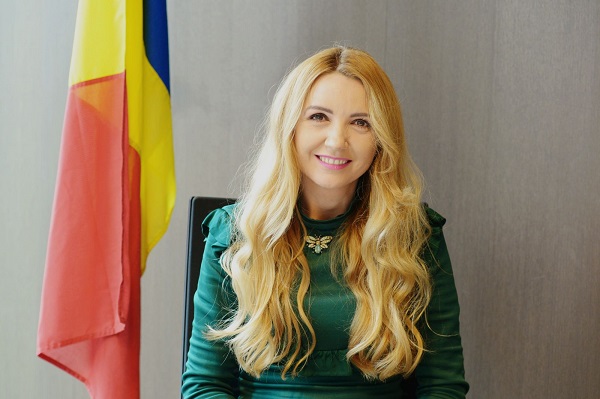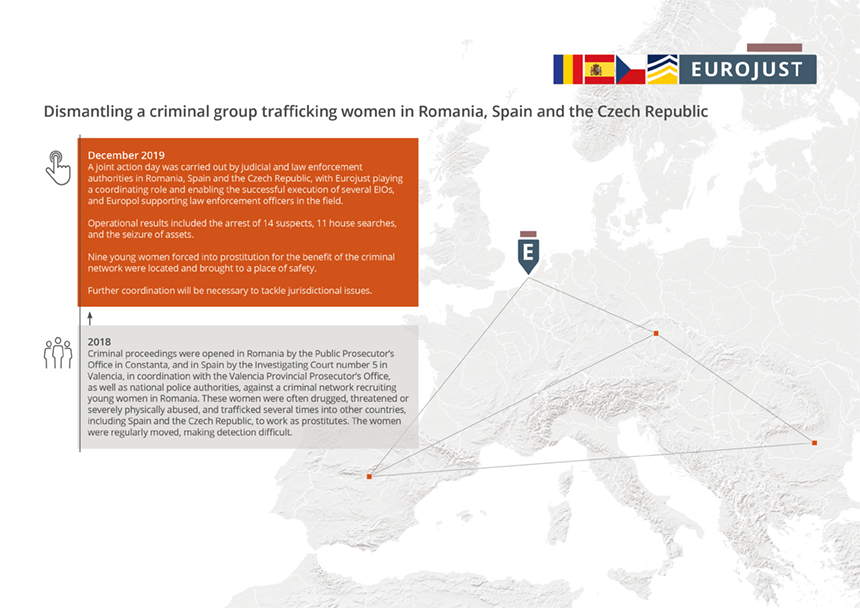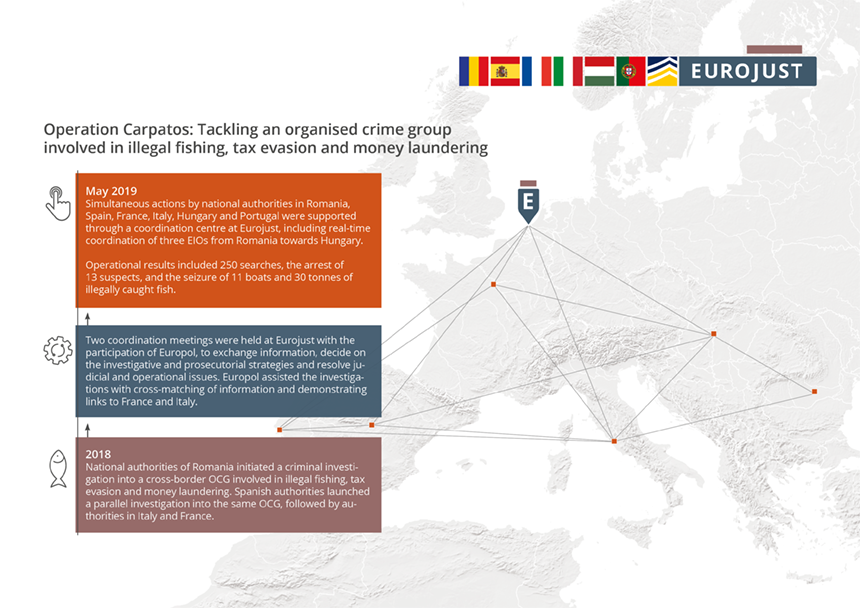
The Romanian Desk is headed by Daniela Buruiana, who is the National Member for Romania.
In 2024, the Romanian Desk was involved in 446 new cases, 90 coordination meetings, 4 coordination centres, and 53 joint investigation teams.

The Romanian Desk is headed by Daniela Buruiana, who is the National Member for Romania.
In 2024, the Romanian Desk was involved in 446 new cases, 90 coordination meetings, 4 coordination centres, and 53 joint investigation teams.

Daniela Buruiana has been appointed National Member for Romania at Eurojust in May 2021. Ms Buruiana has more than 22 years of working experience as a prosecutor at different levels of the Romanian Prosecution Service and has been part of the specialised structure of the Prosecutor’s Office attached to the High Court of Cassation and Justice – Directorate for Investigating Organised Crime and Terrorism since its establishment in November 2004.
Through the years, Ms Buruiana has gained extensive practical experience in investigating and prosecuting cross-border organised crime cases, including drug trafficking, trafficking in human beings, cybercrime and others. She has also carried out complex and concurrent activities in the field of international judicial cooperation and coordination.
Ms Buruiana attended as speaker/trainer various conferences, workshops, training activities and events in Romania and abroad in the field of international judicial cooperation and organised crime.
Ms Buruiana has a Master’s Degree in law from Bucharest University’s Faculty of Law, and she graduated from the Romanian National Institute of Magistracy. She previously worked as National Member for Romania at Eurojust, where she chaired the Cybercrime Team for six years.
What strikes you most about working at Eurojust?
The diversity of legal systems and cultures under one roof. The unique opportunity to have around-the-clock access to legal and judicial experts from 27 EU Member States and more than 50 third countries. The feeling that through collective work we can make a difference and provide added value when assisting and supporting our national authorities in the fight against transnational organised crime.
Could you describe a case that you have supported and which had a particularly successful outcome?
Through the years, the Romanian National Desk has handled many successful cases. Romania is quite an active country in initiating and supporting cases at Eurojust. It is very difficult to choose a single case. However, if I had to I would mention a case I supported right from the beginning of my appointment at Eurojust in 2013. It was called Operation ‘Harnen/Academy of Offenders’. It targeted an organised crime group (OCG) dealing with organised thefts and robberies across Europe causing more than EUR 8 million of damage in total.
When the case was brought to Eurojust, there was no investigation in Romania. In less than two months, Romania opened its own investigation, signed a joint investigation team (JIT) agreement with two other countries and started coordinating and cooperating with the involved jurisdictions to identify all the criminals and collect strong evidence against the network. More than 10 different jurisdictions were involved. Three coordination meetings were organised at Eurojust, which provided support and assistance throughout the entire life cycle of the case, which lasted until 2016. More than 70 arrested suspects were interrogated across Europe. The main leader of the OCG was sentenced to 30 years of imprisonment.
This is a good example of close and effective cooperation and coordination between different countries in a complex investigation using Eurojust support tools, such as coordination meetings and JITs.
Which of the services and tools available through Eurojust do you consider most important for national judicial authorities – and why?
Coordinating between different jurisdictions is crucial for the success of any cross-border investigation involving more than three jurisdictions. That is why coordination meetings and JITs are the most important tools provided by Eurojust to national authorities, especially when they are investigating complex transnational cases. When possible, the combined used of these two tools is ideal.
Coordination between judicial authorities to gather evidence that stands in court, to define prosecutorial strategies right from the beginning and to overcome the legal and judicial challenges posed by the differences in the legal systems are essential for the success of any multilateral case.
It is quite difficult to achieve the same results on a bilateral basis when more than three jurisdictions are involved. Eurojust’s support in bringing together all the relevant authorities in coordination meetings and its assistance and financial support offered via JITs are the main tools which make Eurojust’s support unique in the world.
2018 | 2019 | 2020 | 2021 | 2022 | 2023 | 2024 | |
|---|---|---|---|---|---|---|---|
New cases (total) | 420 | 422 | 501 | 520 | 457 | 540 | 446 |
Coordination meetings (initiating and/or participating) | 67 | 76 | 65 | 64 | 54 | 68 | 90 |
Coordination centres (organising and/or participating) | 9 | 7 | 8 | 7 | 6 | 3 | 4 |
Joint investigation teams (newly signed and/or ongoing) | 50 | 54 | 51 | 46 | 41 | 39 | 53 |

